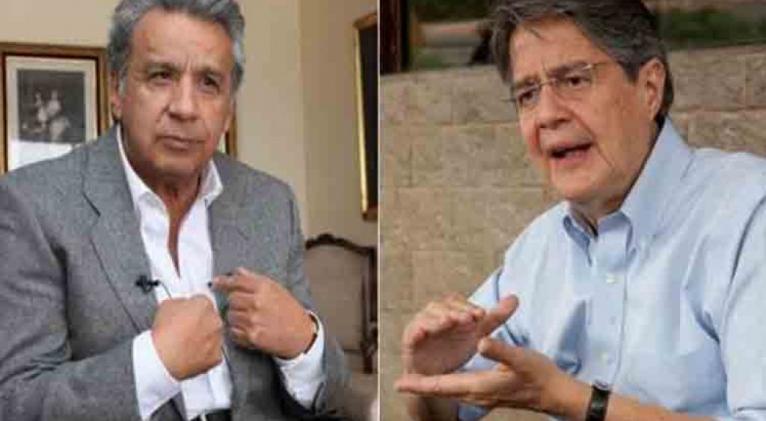Campaign for Second Round of Presidential Elections in Ecuador Begins

Quito, March 10 (Prensa Latina) The two candidates for the presidency of Ecuador, Lenin Moreno and Guillermo Lasso, begin today the electoral campaign that will allow them to attract votes in the face of the second round of elections, scheduled for April 2.
Until next March 30, both aspirants to the maximum position will travel throughout the national territory to present their proposals for government.
On the one hand, the ex-vice president Moreno, representative of the government Movimiento Alianza PAIS, promotes the plan Toda una vida (A lifetime), which includes five axes through which he seeks to cover all sectors of society with bonds and housing.
Accompaniment to pregnant women and newborns, promotion of entrepreneurship, especially in the youth sector, job creation and diversification of the economy, are part of the initiative.
On the other hand, the ex banker Lasso, from CREO-SUMA, promises to create one million jobs, eliminate some of the laws approved by the current executive as the Communication Law, fight corruption and an Ecuador only for Ecuadorians.
The beginning of the campaign is marked by opposition attacks against the government, its top officials, especially the vice president and aspirant to retain the position, Jorge Glas, and attempts to discredit the work of the National Electoral Council (CNE).
Despite the onslaught against the ruling party, Moreno won the first round with 39.36 percent of votes, more than 10 points above the second place, Lasso, who reached a 28.09 percent support.
Despite the margin, the ex-vice president was not declared definitive winner, for not accumulating the 40 percent required by law.
For these 20 days, both candidates have a budget of 769 thousand dollars that can be used in advertising.
According to the schedule on Sunday, March 19, there will be a national voting simulation, while the pollsters will be able to broadcast their studies until midnight on the 22nd.
From March 30 until the voting day, on April 2, a period of electoral silence will govern; a stage that according to the president of the CNE, Juan Pablo Pozo, serves to reflect and define who to vote for.













Add new comment